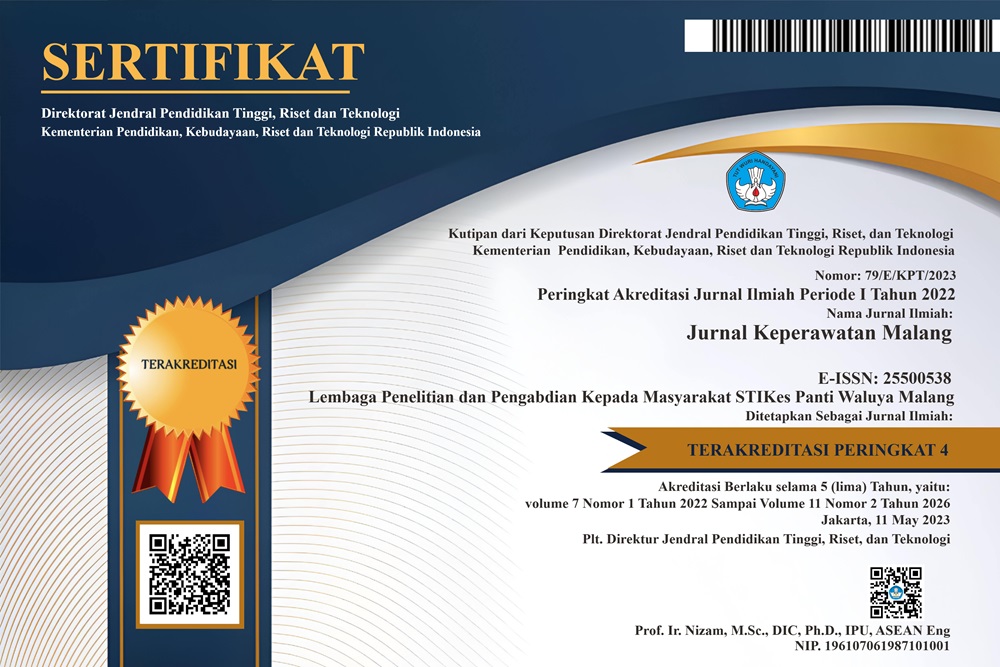Plagiarism Policy
In the publication, Jurnal Keperawatan Malang (JKM, or Nursing Journal of Malang) strongly opposes plagiarism on its own merits. JKM is committed to blocking plagiarism, including self-plagiarism. In order to properly judge whether an author has plagiarized, we emphasize the following possible situations:
- Literal copying – An author copies another author’s work word for word, in whole or in part, without permission and without acknowledging or citing the original source. This practice can be identified by comparing the original source and the manuscript/work suspected to be plagiarized.
- Substantial copying – An author reproduces a substantial part of another author’s work, without permission and without acknowledging or citing the original source. The term ‘substantial’ can be understood both in terms of quality and quantity, being often used in the context of intellectual property. ‘Quality’ refers to the relative value of the copied text in comparison to the work as a whole.
- Paraphrasing – An author takes ideas, words, or phrases from a source and crafts them into new sentences within their own writing. This practice becomes unethical when the author does not properly cite or does not acknowledge the original work/author. This form of plagiarism is the more difficult form to be identified.
Authors must ensure that they have written the original work completely, unpublished, and not pending publication elsewhere. Authors must provide correct citations if using the work or words of others. If there is any indication of fraud and/or plagiarism >15% in the manuscript, JKM has the right to reconsider and reject the manuscript.
Before the author submits a script to the Jurnal Keperawatan Malang (JKM, or Nursing Journal of Malang) at least to first check the use of plagiarism. Authors can use plagiarism checkers such as turnitin or iThenticate and to avoid plagiarism attempts, authors can use reference management software such as mendeley or Zotero.











